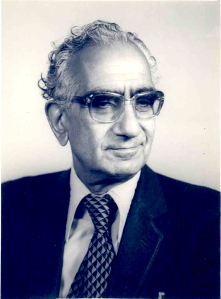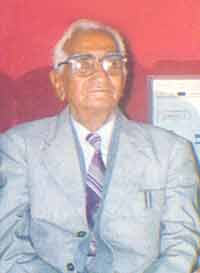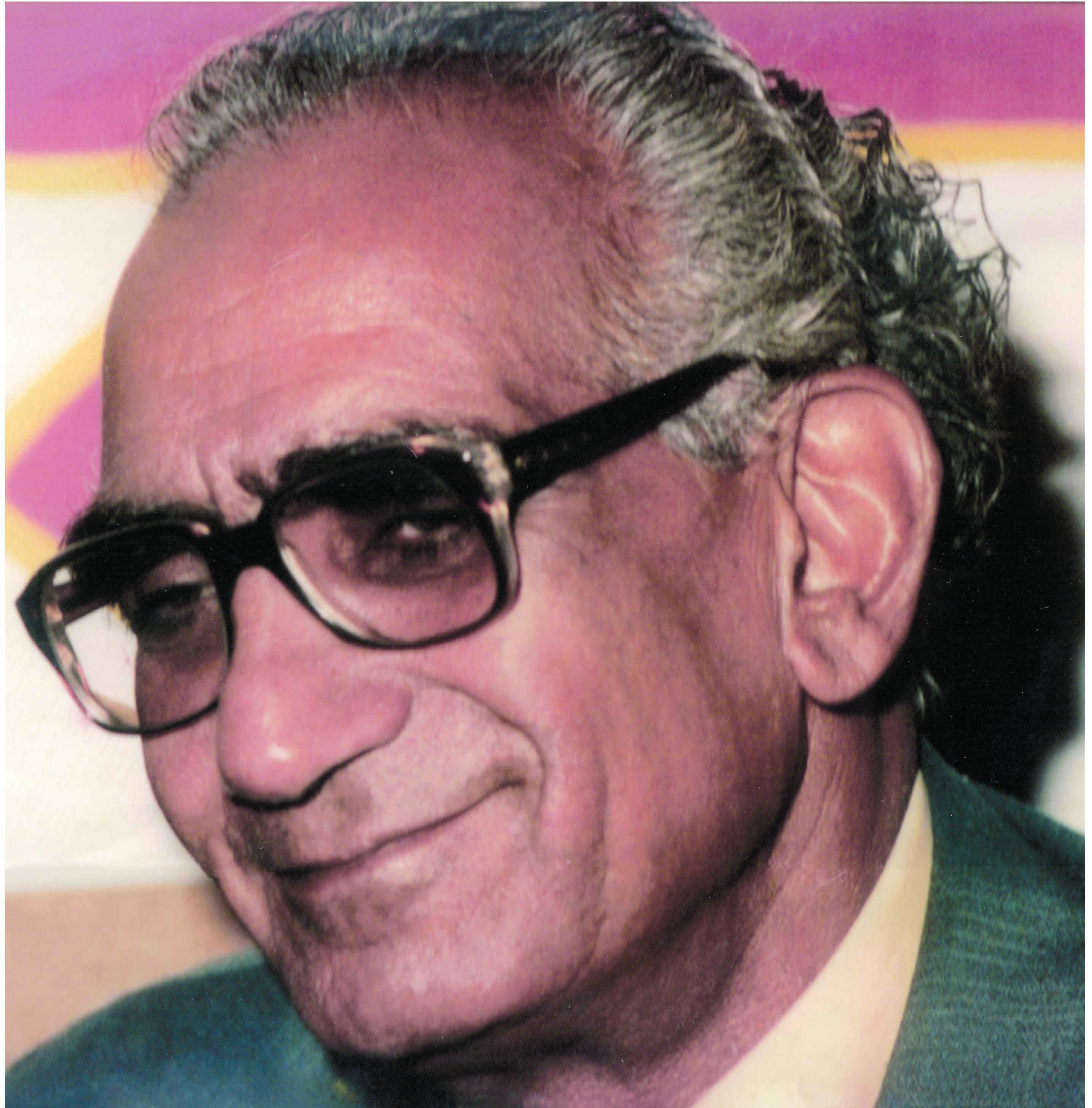Many of us don't know that the
Qaumi Tarana written by
Ab ul Asr Hafeez Jalandhari was not the first and only National Anthem of Pakistan. I found out about the original one around 5 years back but never got a hold of the complete text, only bits of it. The purpose of sharing this is that I've finally seen the complete text of the poem for the first time.
The story goes like this. Around August 11, 1947 Muhammad Ali Jinnah asked his friend,
Jagannath Azad, a renowned poet to pen down Pakistan's first national anthem. Jagannath Azad asked Jinnah for a couple of directions and Jinnah according to some people asked him to write it in praise of the nation's beauty, its people and their struggle. Azad completed the anthem within days and it was used as the national anthem until after the death of Jinnah.
In 1948, a National Anthem Committee was formed by the Legislative Assembly to select a new national anthem for Pakistan. It comprised of Sardar Abdur Rab Nishtar, Ahmed Chagla and Hafeez Jallandhari. Impeding a visit by the Shah of Iran in
1950, Ahmed Chagla’s composition was selected while verses had not been finalized. The anthem as we know it today, was finalized in
1954. Certain people are confused and reject the idea that the tune could have been selected before the verses but this in fact the truth. It was selected in 1950 after Prime Minister Liaquat Ali Khan approved it on August 10, 1950. The verses weren’t selected till 4 years later and the complete anthem was sung on Radio Pakistan for the first time on August 13, 1954 and the MoI announced the official approval on August 16, 1954.
In Azad’s own words, this is the story of the anthem:-
The National anthem was written by me in five days time. It was too short time for me but I tried to do full justice to it keeping in mind the road map charted by Jinnah sahib for modern Pakistan.The national anthem was sent to Jinnah sahib who approved it in a few hours. It was sung for the first time on Pakistan radio, Karachi (which was the capital of Pakistan then). Meanwhile the situation in both east and west Punjab was becoming worse with every passing day and the same set of friends told me in September 1947 that even they would not be able to provide protection to me and that it would be better for me to migrate to India. I decided to migrate to this side. The song written by me continued to be the national anthem for one and a half years.
Dawn had reported this twice in the '90s and once again in 2004. They could only get their hands at the first stanza, which were the verses known to a number of historians. The complete text though has finally been obtained by
Beena Sarwar through Azad's son
Chander K. Azad who resides in Jammu.
A nice enough of translation has been done by her as well:-
O, Land of the Pure
O, Land of the Pure
The grains of your soil are glowing today
Brighter than the stars and the Galaxies
Awe-struck is the enemy by your will-power
Open wounds are sewn, we’ve found a cure
O, Land of the Pure…
New paths of progress, we resolve to tread
Proudly, our nation stands with a high head
Our flag is aflutter above the moon and the stars
As planets look up to us be it Mercury or Mars
No harm will now come from anywhere, for sure
O, Land of the Pure…
The nation has tasted success at last
Now freedom struggle is a thing of the past
The wealth of our country knows no bounds
For us are its benefits and bounty all around
Of East and West, we have no fear
O, Land of the Pure…
Change has become the order of the day
No-one is a slave in the nation today
On the road to progress, we’re swiftly going along
Independent and fortunate, happy as a song
Gloomy winds are gone, sweet freedom’s in the air
O, Land of the Pure…
The grains of your soil are glowing today
Brighter than the stars and the Galaxies
The renewed interest in the anthem is two fold.
Firstly, the
Qaumi Tarana is in Persian and although people know it by heart and understand most of it, an almost foreign language (we share many words that’s why I’m saying almost) is not as appealing as Urdu. The original anthem is in plain and simple Urdu unlike the works of many poets of that day as well.
Secondly, in a time of intolerance and sectarianism haunting us, many people want to celebrate a much more secular history and they want to know why it was not deemed worthy when the founder himself had approved of it? Was it because a Hindu had penned it down? These are tough, complex and unanswerable questions. Hasb e Haal while going through this issue, made a good suggestion that even if we don’t want to replace the anthem, we can at least give it a recognized and exalted status and recover its original recordings besides getting it sung and composed beatifically again.
A little bit about Jagannath Azad:-
He was born in Minawali (or Isakhel) to
Tilok Chand Mehroom, a famous poet. He studied at Gordon College Rawalpindi and University of Punjab. He was in Lahore when Jinnah asked him to write the anthem. Azad moved to India later and worked in the Ministry of Food, and the Ministry of Works and Housing. He taught at the University of Jammu and did extensive work in
Iqbaliyat. He died on July 24, 2004 at the age of 85.
A 2004
Dawn article by Ashfaque Naqvi beautifully states the following :-
Jagan Nath Azad has been attending mushairas and delivering lectures and has written about most of his foreign trips. However, while writing about Pakistan he never calls it a foreign country. Even Gen. Ziaul Haq told him that he should consider it to be his own country and come here whenever he felt like it. He openly accepts that the reception he receives in Pakistan is totally different from what he experiences in other countries. His love for Pakistan is evident from his verse:
Sham key saey mein Jamna ki ravani dekh kar
Mujhko aey Azad Ravi ka saman yad aa gaya
Jagan Nath Azad has won several awards from Pakistan, India, Russia and other countries. For the naats composed by him, he was given the Seerat-i-Pak Award by Bradford Publications of UK. Not only that, Jagan Nath Azad has written a long poem condemning the destruction of the Babri Mosque. Says he:
Hamarey dil ko tora hey imarat ko nahin tora
Khabasat ki bhi had hoti hey aey had torney waley
The books authored by Jagan Nath Azad include some on literary criticism while about eleven, both in English and Urdu, are on Iqbal. It would be interesting to know that soon after partition, Iqbal was almost banned in India. It was only through the efforts of Jagan Nath Azad that Iqbal is as highly respected there today as Khusrau, Meer or Ghalib. Even in Pakistan, it was Jagan Nath Azad’s whisper into the ears of Gen Ziaul Haq that led to the establishment of the Iqbal Chair in the Punjab University.
Many Indians, like Iqbal Singh and Hira Lal Chopra, have done extensive work on Iqbal. Dr Chaman Lal Raina has gone to the extent of converting his verses into Hindi. On his part, Dr Rafiq Zakaria, former chancellor of the Urdu University in Aligarh, has written a full book under the title, Iqbal: The Poet and the Politician, in which he has expressed surprise why Iqbal is not revered in India.
It goes to the credit of Jagan Nath Azad that he has all along tried to emphasise the fact that great and durable poetry transcends all barriers of caste, creed and colour. Being a humanist, Iqbal’s poetry echoes the sentiments and feelings of humanity at large. There is no denying that he has championed the cause of the exploited and oppressed people of the world.
Here is an obituary:-
Doyen of Urdu, The Milli Gazette, Vol.5 No.16, MG110 (16-31 Aug 04)
and here is an interview shortly before his death:-
My last wish is to write a song of peace for both India & Pakistan: Azad, The Milli Gazette, Vol.5 No.16, MG110 (16-31 Aug 04)
A few pictures of Azad :-













 writer, poet and above all composer of the National Anthem of Pakistan[1]. He was born in Jalandhar, Punjab, India on January 14, 1900. After independence of Pakistan in 1947, Hafeez Jullundhri moved to Lahore. Hafeez made up for the lack of formal education with self-study but he has the privilege to have some advise from the great Persian poet Maulana Ghulam Qadir Bilgrami. His dedication, hard work and advise from such a learned person carved his place in poetic pantheon.
writer, poet and above all composer of the National Anthem of Pakistan[1]. He was born in Jalandhar, Punjab, India on January 14, 1900. After independence of Pakistan in 1947, Hafeez Jullundhri moved to Lahore. Hafeez made up for the lack of formal education with self-study but he has the privilege to have some advise from the great Persian poet Maulana Ghulam Qadir Bilgrami. His dedication, hard work and advise from such a learned person carved his place in poetic pantheon.